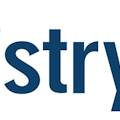ADHA supports recommendations from Oral Health America
On October 8, 2013, Oral Health America (OHA) issued a recommendation which supports the expansion of oral health services through the utilization of dental hygienists and dental therapists. The American Dental Hygienists’ Association (ADHA) supports and applauds the recommendation made by OHA.
The recommendation comes from “A State of Decay,” a national report on the oral health of older Americans. “A State of Decay,” a state-by-state analysis of oral health care delivery and public health factors impacting the oral health of older adults, reveals that more than half of the country received a "fair" or "poor" assessment when it came to meeting the minimal standards affecting dental care access for older adults.
RELATED:A 'state of decay' flourishes among older Americans, according to oral health report
“A State of Decay” highlights both public health and health care delivery factors affecting the oral health of older adults. The methodology for determining each state’s total score was based on a formula that weighted five selected contributing factors to older adult oral health. Those factors are state oral health plans, edentulism, community water fluoridation, and dental Health Professional Shortage Areas (HPSAs). The American Dental Hygienists’ Association (ADHA) supports OHA’s recommendation to mitigate dental HPSAs by improving the primary health care workforce through the expansion of dental hygienists and dental therapists.
Minnesota, which ranked highest of all states surveyed in providing dental care access for older adults, is the first in the nation to approve the licensing of a mid-level oral health care provider, known in Minnesota as an Advanced Dental Therapist (ADT). The ADT is dually licensed as a dental hygienist and an ADT. Their education and training allow them to perform such duties as filling cavities and extracting teeth. Policymakers in other states, such as Washington and Maine, are viewing Minnesota’s law as one of several potential solutions to the lack of access to dental care for millions of Americans, particularly the poor and uninsured.
RELATED:States with the best (and worst) adult oral healthcare
“Using the dental hygiene workforce in a manner that allows dental hygienists to work with flexibility and up to the level they are educated will help to open the doors of access for many. Patients will benefit from a provider who can deliver both the preventive scope of a dental hygienist and the focused restorative scope of an advanced dental therapist,” said ADHA President Denise Bowers, RDH, PhD.
In conjunction with the report release, OHA launched a new online resource, ToothWisdom.org. A first-of-its-kind website focusing on older adults and oral health, the site connects older adults and their caregivers to local care and education about the oral health issues they face, the importance of continuing prevention as we age, and the impact of oral health on overall health. ADHA is proud to be a sponsor and partner with Special Care Dentistry Association (SCDA) and OHA in their efforts to address the issues facing older adults and oral health.
You can find the 2013 “A State of Decay” report here.
For more information on the ADHA, visit their website: www.adha.org.
